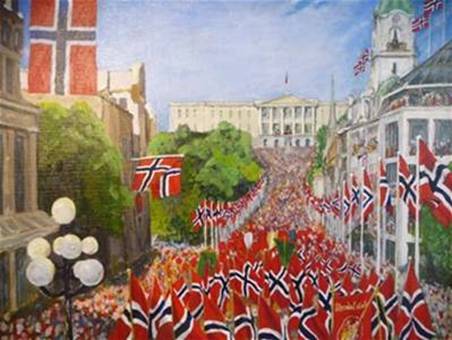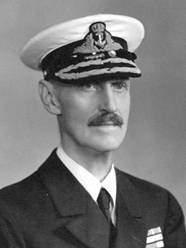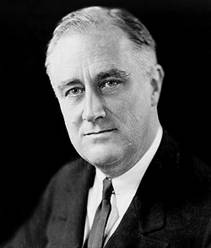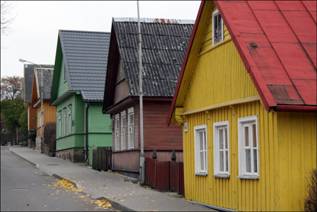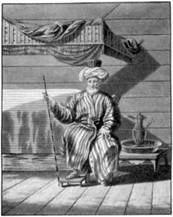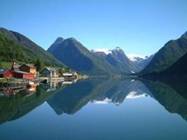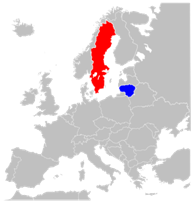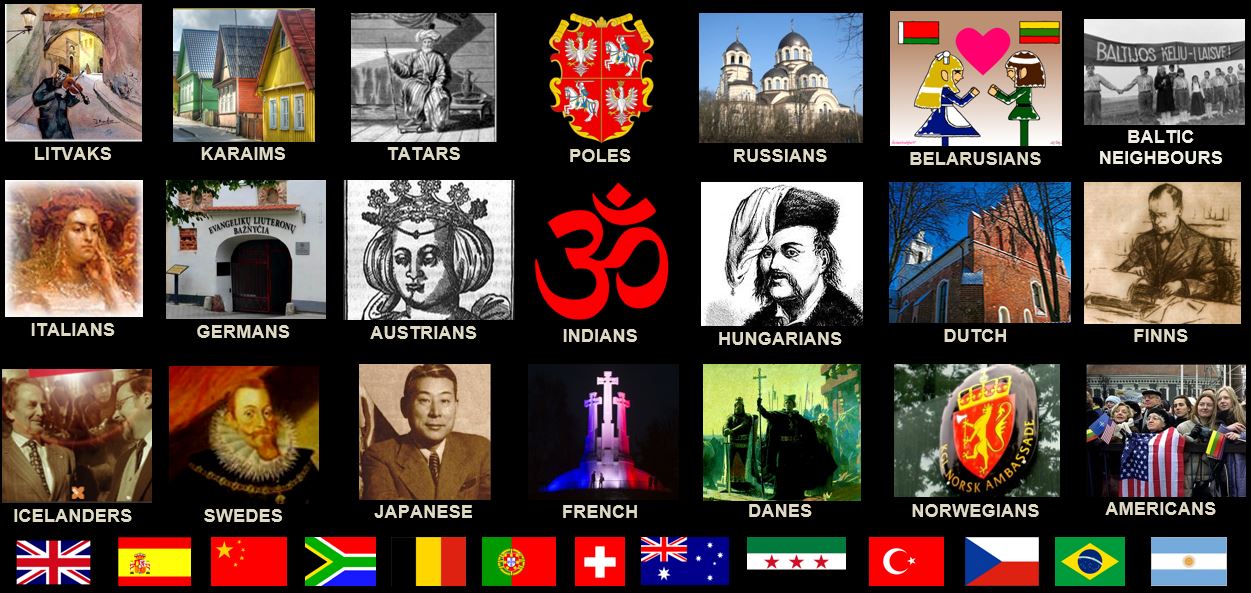

THE VOICE OF INTERNATIONAL LITHUANIA
|
VilNews has its own Google archive! Type a word in the above search box to find any article.
You can also follow us on Facebook. We have two different pages. Click to open and join.
|
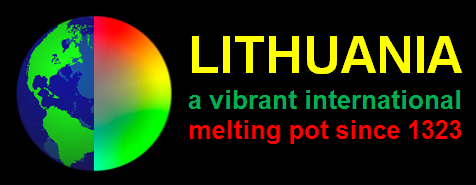
Fri, 12th August, 2011 - Posted by - (2) Comment
Searching for the Holy Grail?
COME TO VILNIUS!

Forget Rosslyn Chapel in Scotland. Forget the Louvre Museum in Paris. If you're among the millions who have read Dan Brown's book 'The Da Vinci Code', you have probably also made some reflections on how the Holy Grail disappeared, virtually without a trace, after Leonardo da Vinci died in 1519. In that case I will now give you some hints and clues that you can begin to investigate.
Let me first put on the table some facts Dan Brown missed in his book. Brown, and many with him, thinks of Florence, Rome and Paris as the cities da Vinci was linked to. Most people forget that he lived and worked in Milan for many years, and that it was precisely here he painted ‘The Last Supper’ that Dan Brown so strongly emphasizes in his evidence collection.
Brown also does not mention that da Vinci for many years lived in the house of the Sforza family that ruled Milan at that time. But it is in this house the solution to the riddle lies. For it was here 42 year old Leonardo had the pleasure to live when a beautiful baby girl was born in 1494. Bona was the name she was given, and she and 'uncle Leonardo' had a lot of fun together while she grew up. But not just fun. Leonardo had great pleasure in sharing many of his thoughts and ideas with the wise little girl, so when she was a grown young lady of 20 she was quite well informed about many of ‘uncle Leonardo’s’ undertakings, not only in the public sphere but also in the secret. The future Grand Duchess of Lithuanian did, indeed, get a top education...
- Bookmark :
- Digg
- del.icio.us
- Stumbleupon
- Redit it
Wed, 10th August, 2011 - Posted by - (3) Comment

Lithuania has an amazing 700-year history as an international melting pot. This has been especially evident since 1323, the year Grand Duke Gediminas founded Vilnius as Lithuania's capital city and immediately decided to invite merchants, craftsmen, bankers, farmers, and soldiers from all Europe to come to the new capital, guaranteeing all freedom of beliefs and good working conditions. Vilnius became international, though with less of German or Scandinavian influence, as one could expect, rather influenced by Italy and Mediterranean ideas – greatly different from the other two Baltic capitals where Hanseatic influence became dominant.
VilNews will in some upcoming issues publish articles about impacts of foreign nations and cultures here. We also welcome you, dear readers, to share with us information you may have about 'foreign footprints in Lithuania'.
Stephen Báthory, the Hungarian who became Lithuania's Grand Duke
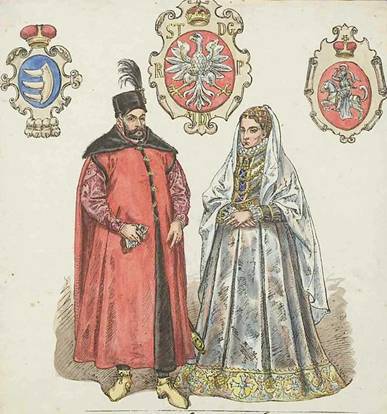
Stephen Báthory and his wife Anna Jagiellon were co-rulers, as the second monarch in the Polish-Lithuanian Commonwealth with the dual title 'King of Poland and Grand Duke of Lithuania'.
Békés Hill in Vilnius
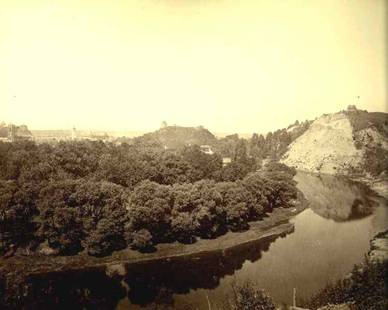
This was a hill next to the Hill of Three Crosses in Vilnius, named after Gáspár de Kornyath Bekes (1520 - 1580), a Hungarian noble who was buried on the hill which later became known as the Bekes Hill. His grave was marked by an octagonal tower, 20 meters (66 ft) high and 6 meters (20 ft) in diameter.
The river Vilnia, flowing at the foot of the hill, was eroding it until in 1838 five walls of the monument fell, and other walls went down in 1841. A small cemetery is thought to have been here in the 17-18th century, and at the beginning of the 20th century paths leading from the Botanical and Bernardine Gardens to the hill top were designed.
Royal stud of horses
in Birštonas

Hungarians started showing interest for the area of Birštonas already in the 16th century, even being rendered the rights of the district for 40 years. In these times a royal stud of Hungarian horses thrived here where River Nemunas makes its amazing loop…
Panemunė Castle
near Jurbarkas

Over the years 1604 - 1610 the Hungarian nobleman Janusz Eperjes built the Panemunė Castle on a hilltop at the Nemunas River, not far away from the town Jurbarkas (above today's highway between Kaunas and Jurbarkas). The castle was probably built in connection with the river driving and transport of timber on the Nemunas River that started flourishing by the middle of the 16th century.
- Bookmark :
- Digg
- del.icio.us
- Stumbleupon
- Redit it
Neither Milošević nor the Greek listened to my advices
Sun, 3rd July, 2011 - Posted by - (1) Comment
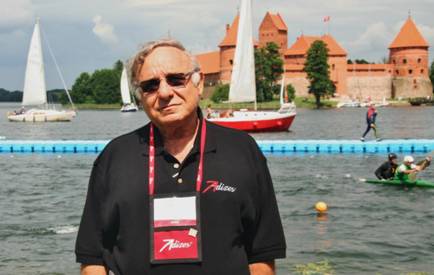
"I am an organisational healer, providing and working with change management for companies, organisations and governments. But not all listen to my advices," said Dr. Ichak Adizes when we sat down at a lunch table in Trakai Saturday, using the former Serb leader Milosevic and the Greek Government as examples of exactly that.
The annual 'Adizes International Convention' took place in Vilnius this weekend. It was the 33rd annual convention for the global organisation that Dr. Adizes started three decades ago. And on Saturday all the convention delegates from around the world were bussed to Trakai for an 'almost self-baked lunch', a visit to the castle; plus a little glimpse into the past of the Karaim people who came to Trakai from Crimea 600 years ago, still today representing a huge surprise to most visitors meeting these colourful, Turkic people in far north Lithuania.
My conversation with Dr. Adizes this Saturday afternoon was rather brief and superficial. There were simply too many people and too much noise around us. I will therefore leave it up to his own articles/blogs (below) to speak for him this time.
We did, however, get the opportunity to touch several aspects of what he has experienced during his long life as a consultant and advisor for businesses, organizations and governments around the world. His story about his talks with Milosevic in 1991 follows below.
The fact that his advice to the Greek government, about 20 years ago, regarding the country's way to plan their finances, were not listened to or followed, is a topic we will try to return to at a later date. Just sad to see how much it now costs the country to have been bad listeners when it still was plenty of time to choose another course...
Maybe it's time now for Lithuania to seek professional advice?
Aage Myhre, Editor-in-Chief
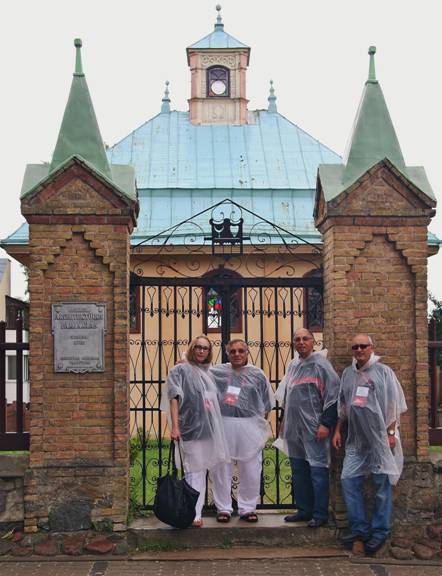
Nurit and Ichak Adizes, Shimon M. Rojany and Gad Mizrahi from the global Adezis organisation were all deeply impressed by the story about the Trakai Karaims. Here in front of the Karaim temple in Trakai, the 'Kenasa'.
- Bookmark :
- Digg
- del.icio.us
- Stumbleupon
- Redit it
Sun, 3rd July, 2011 - Posted by - (1) Comment
My personal experience with Slobodan Milošević
(20 August 1941 – 11 March 2006)
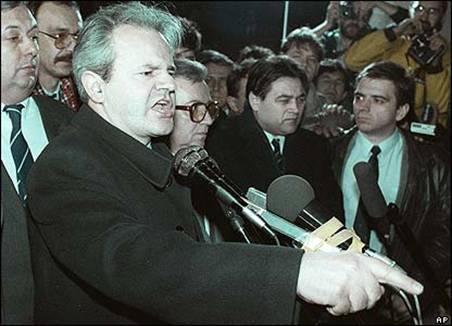
Slobodan Milosevic officially became Serbian president in 1989, in elections widely
regarded as rigged. He abolished Kosovo's autonomy the same year.
An article by Dr. Ichak Adizes
Published in 1999
In July 1991, Mr. Zelenovic, the Prime Minister of Serbia at the time, invited me for consultations on the breakdown of the Yugoslav Federation. I was well known as someone who knew Yugoslavia well. I published two books on Yugoslavia, which were translated to several languages.
When I arrived, I met with a joint session of the cabinet and the leadership in the Parliament of the Socialist party, which was and still is in power. I did an interactive diagnosis of the situation with them.
My conclusion was that the problem was not Slovenia nor Croatia, which were seeking independence (Bosnia was not awaken yet), but that it was Kosovo. It had 2 million Moslems who did not wish to be part of Yugoslavia. With a population plagued by low literacy, high unemployment and high birth rate, the highest in the world with an average of 9 children per family, it was costing Yugoslavia 1.5 billion dollars a year to provide health, education and unemployment benefits.
"How can you keep doing this?" I asked. "While Serbian hospitals have no medicines, you are spending a fortune on Kosovo where people hate you. You yourself say that few years back the Albanians were only 400 000, now they are two million. When will this geometrically expanding wave reach Belgrade? Kosovo is the Serbian gangrene. True, 500 years ago Kosovo was the valley where the Serbian nation was born. OK. I accept your claim that it is the Serbian Jerusalem and one does not give up motherhood's help; but wouldn't you cut your own right arm if it had gangrene or would you let it spread?"
- Bookmark :
- Digg
- del.icio.us
- Stumbleupon
- Redit it
What makes a person attractive?
Sun, 3rd July, 2011 - Posted by - (1) Comment
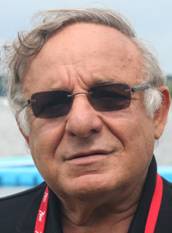
Dr. Ichak Adizes
A blog by Dr. Ichak Adizes
If you ask a man what makes a person attractive, you will get different answers than if you ask a woman.
Men, as I understand, usually focus on physical attributes: the legs, the breasts, etc.
Women tend to focus on the brain and on a man’s ability to support and defend, etc.
I have another idea, which I hope both sexes can agree to. (And if you predict that it has something to do with integration, you’re right.)
When a person has it “all together”––i.e., is integrated––none of their energy is wasted. This person exudes energy, while a person who is “falling apart” takes energy from the people around him or her.
Who is attractive? Those that give you, not take from you, energy.
People who “have it together” are attractive. Those that are “falling apart “ are not.
- Bookmark :
- Digg
- del.icio.us
- Stumbleupon
- Redit it
Thu, 26th May, 2011 - Posted by - (5) Comment
![]()
(means “let’s be together”)
“I challenge all of us to volunteer”
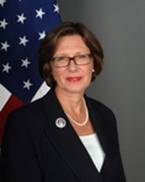 |
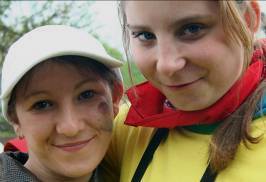 |
Ambassador Anne E. Derse: “The U.S. Embassy is honoured
to be the patron of “Būkime kartu” this year.
On Saturday 28th of May over 100 children from local orphanages will participate in “Būkime kartu 2011”, organized by the international community in Lithuania, including U.S. and other foreign embassies, Lithuanian public institutions and volunteers. The programme is intended to provide the children needed personal attention and care, and to promote the virtues of volunteering in Lithuania.
This event involves more than 150 volunteers from foreign embassies, private companies and public institutions and is under the patronage of the U.S. Ambassador to Lithuania, Anne E. Derse. “The U.S. Embassy is honoured to be the patron of “Būkime kartu” this year. 2011 is the “European Year of the Volunteering” in the European Union, and volunteerism is a value that is strongly held in Lithuania. In the United States as well, we have long believed that service to the community and work done for the greater good is part of the foundation of a stable, free and productive society. I challenge all of us to continue exploring ways to volunteer, give back and make a positive contribution to our communities,” said Ambassador Anne E. Derse, the patron of the event.
Mr. Torben Pedersen, Chairman of the “Būkime kartu” Committee under Vilnius International Club said: “2011 is the 9th year that “Būkime kartu” has been organized on the initiative of Vilnius International Club. It’s a full day of fun and learning, not only for orphans, but also for the many volunteers that made the event happen. Volunteering brings a special experience, which tried once gives an impressive understanding and responsibility for caring for each other. This is what drives us to continue with the event year after year”.
As a special recognition for outstanding contribution to support children of Lithuania, Vilnius International Club has introduced a “Volunteer of the Year” award this year, which will be announced at the event.
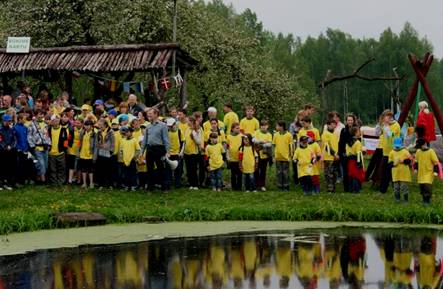
From “Būkime kartu 2010”
- Bookmark :
- Digg
- del.icio.us
- Stumbleupon
- Redit it
Look to Norway!
Mon, 16th May, 2011 - Posted by - (9) Comment
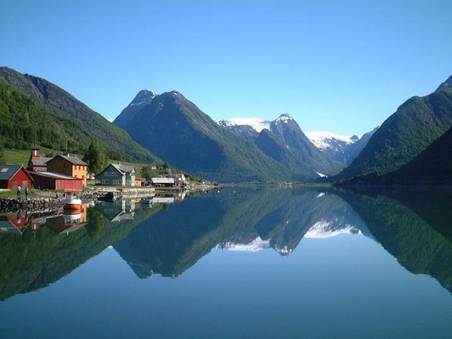
Text: Aage Myhre, Editor-in-Chief
When I came to Lithuania for the first time from my native Norway, more than 20 years ago, this country's political leadership was in the process of drafting the new law book that would be the legal framework for the modern democracy this country was supposed to become after all the years of Soviet occupation. Our small delegation from Norway suggested that one simply could translate our Norwegian legislation, of a free and functioning democracy, but Lithuania's politicians chose not to follow our advice, and used instead many years to develop their own laws. This country's leaders have, for better or worse, an extensive belief in their excellence and ability to reinvent the wheel even when it would have been so much easier to seek advice and help from good neighbours.
- Bookmark :
- Digg
- del.icio.us
- Stumbleupon
- Redit it
17 May is Norway’s National Day
Mon, 16th May, 2011 - Posted by - (3) Comment
|
|
The Norwegian Constitution Day is the National Day of Norway and is an official national holiday each year. Among Norwegians, the day is referred to simply as syttende mai (meaning May Seventeenth), Nasjonaldagen (The National Day) or Grunnlovsdagen(Constitution Day), although the latter is less frequent. The Constitution of Norway was signed at Eidsvoll (a small town 60 km north of Oslo) the 17th of May 1814. The constitution declared Norway to be an independent nation. |
- Bookmark :
- Digg
- del.icio.us
- Stumbleupon
- Redit it
Mon, 16th May, 2011 - Posted by - (0) Comment
President Dalia Grybauskaitė on state visit to Norway:
The vast opportunities for cooperation must be used
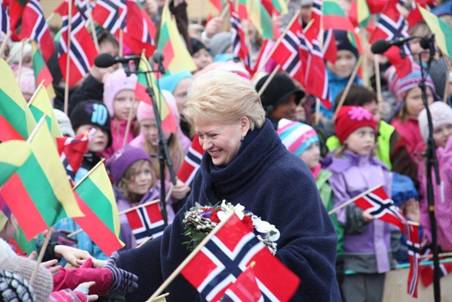 At the second day of her two-day state visit to Norway in early April this year, President Dalia Grybauskaitė was accompanied by King Harald V on a visit to the Fiskerstrand Shipyard in the city of Ålesund in Western Norway. |
"This first state visit to Norway has revealed plenty of perfect but unused opportunities for cooperation with the Nordic countries, both in politics and in developing concrete business projects. Joint projects between shipbuilders of Ålesund and Klaipėda in constructing the most advanced ferryboats and between textile producers of the Sula Municipality and Panevėžys are just a few examples of successful economic cooperation. Norway's Prime Minister, other highest politicians of the country as well as businesspeople whom I met confirmed Norway's strong intentions to develop cooperation with Lithuania," President Dalia Grybauskaitė said. Over-100-years-old Fiskerstrand Shipyard focuses on innovations, ship architecture, construction, repairs and testing. This Norwegian company has been cooperating with Klaipėda's Western Shipyard for 11 years already. The Lithuanian and Norwegian partners are currently carrying out a 90-million-euros-worth project of constructing sea-going ice-resistant ferryboats. Moreover, last year the Fiskerstrand Shipyard contracted the Western Shipyard of Klaipėda to build the world's largest gas-powered ferryboat using advanced technologies. |
- Bookmark :
- Digg
- del.icio.us
- Stumbleupon
- Redit it
Roosevelt’s ‘Look to Norway’ speech
Mon, 16th May, 2011 - Posted by - (1) Comment
|
The "Look to Norway" speech by U.S. President Franklin D. Roosevelt was given during the handover ceremony of the Royal Norwegian Navy ship HNoM King Haakon VII at the Washington Navy Yard on 16 September 1942. In the speech the President said: "If there is anyone who still wonders why this war is being fought, let him look to Norway. If there is anyone who has any delusions that this war could have been averted, let him look to Norway; and if there is anyone who doubts the democratic will to win, again I say, let him look to Norway."
The speech served as an important source of inspiration to Norwegians fighting the German occupation of Norway and the rest of Europe as well as for the resistance fighters of other small countries during World War II. |
- Bookmark :
- Digg
- del.icio.us
- Stumbleupon
- Redit it
Global financial meltdown? Not in Norway
Mon, 16th May, 2011 - Posted by - (1) Comment

One European nation escaped the worldwide financial meltdown and recession more or less unaffected. That was Norway, a country which saved its money - rather than spent it - through the boom years. As a result of frugal financial management, Norwegian housing prices and consumption have been on the upswing and interest rates affordable also during the deepest global crisis the latest years. Norway’s fiscal responsibility of its income from enormous oil and gas reserves has allowed the nation to build one of the globe’s largest investment funds.
After large deposits of gas and oil were discovered in the 1970s, Norway didn’t go on a spending spree, and channelled its revenues into a state investment fund (The Government Pension Fund). As of the valuation in June 2007, it was the largest pension fund in Europe and the fourth largest in the world. As of 31 December 2010 its total value is NOK 3,077 billion ($525 billion), holding 1 per cent of global equity markets. With 1.78 per cent of European stocks, it is said to be the largest stock owner in Europe. The government - with very few exceptions - can spend only four percent of those revenues annually.
Beyond its oil and gas revenues, strict banking regulations - tightened after a banking crisis in the early 1990s - shielded Norway from the credit crisis. Norwegian banks made loans wisely and stayed away from exotic investments and financial products over the past decade. “They (the United States) got all the bright guys to make all kinds of fantastic products. Very creative. And it turned out it was maybe not the best solution in the end,” Mr. Amund Utne, a director of Norway’s Finance Ministry, said, with typical Norwegian understatement. “I think Norwegian banks are not as creative. In this situation, it may be good to be somewhat boring.”
Norway also was immune from the housing bubble. According to Bjorn Erik Orskaug of DnB NOR, Norway’s largest bank, “Housing prices are back up. Consumption is up. Banks are lending normally to the household sector and interest rates are staying low.”…
- Bookmark :
- Digg
- del.icio.us
- Stumbleupon
- Redit it
I found my family!
Fri, 13th May, 2011 - Posted by - (1) Comment

My first meeting with my family in Lithuania
- we had been searching for 90 years
By KR Slade
It's Saturday, 28 May 2005, 6pm, in Lithuania. I've just returned to my room in the capital city, Vilnius, from my nine-hour day-trip to Kaunas, Lithuania's second-largest city. Kaunas had been the capital of the first Republic of Lithuania, during the inter-world-wars period, and is 90+ percent ethnic-Lithuanian -- compared to 60 percent in Vilnius. Lithuania is, now and since 1990, in its ‘third’ republic, again free, after its second -- and fake --‘Lithuanian Soviet Socialist Republic’, when it was occupied and annexed by the Union of Soviet Socialist Republics. Kaunas is called ‘the heart of Lithuania’, especially by the people of Kaunas. Today is a very special day for my family in Lithuania: the fifth anniversary of the death of our family’s Cardinal Vincentas Sladkevicius.
- Bookmark :
- Digg
- del.icio.us
- Stumbleupon
- Redit it
Cardinal Vincentas Sladkevicius was my cousin
Thu, 17th March, 2011 - Posted by - (0) Comment
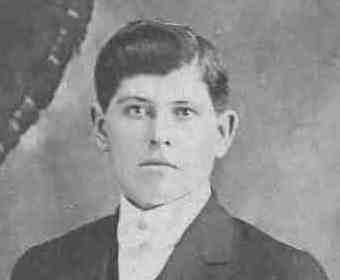
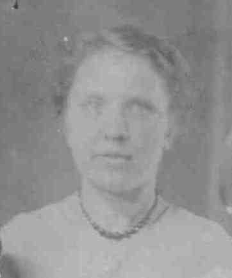
My grandfather Jonas Sladkevicius and grandmother Dominyka Juskeviciute Sladkeviciene
In 1960, my father told me that a member of our family was a bishop in Lithuania. It was there, when part of Czarist Russia, where my grandmother and grandfather had been born sometime in the last decade of the 1800's, from where they emigrated to Rhode Island in the United States where they would meet and marry in 1915. The information about the bishop came from the two Lithuanian-born priests at our Providence, RI church, Saint Casimir’s, where my father attended mass daily since he was a child. Dad also told me, “Don’t tell anybody”. We never again discussed the subject.
- Bookmark :
- Digg
- del.icio.us
- Stumbleupon
- Redit it
Vytautas Sliupas (80) and his farm project in Northern Lithuania
Sun, 6th March, 2011 - Posted by - (3) Comment


Vytautas J. Sliupas at the farm and farm project he founded in 2002,
‘The Auksuciai Farm & Forest Center’ near Siaulia in Northern Lithuania.
After the death of his wife Liudvika, Jonas Sliupas married Grasilda Grauslytė in 1929. After settling in Palanga, their son, Vytautas, was born to them on the 24th of October 1930.
Their son, Vytautas J. Sliupas, later became an irrigation, drainage and water resources engineer. Now retired for many years, he lives in California, USA, but visits Lithuania every summer.
I have the great honour and pleasure to call Vytautas Sliupas my friend. As I understand and feel it, he has the same strong love of Lithuania, which his father had. This despite the fact that he was forced to flee from Lithuania with his parents in 1944 and since has lived virtually all his life in the United States.
Vytautas Sliupas’ farm project in Northern Lithuania
The US non-profit Auksuciai Foundation was established to help small scale Lithuanian farmers become more self-sufficient and competitive in a free market economy. A primary way that Foundation is working to achieve this goal is through support and advisory involvement with a model farm facility (the Auksuciai Farm and Forest Center, a Lithuanian non-profit), that allows participants from academia, business, government, and the farm community to share information and technology regarding environmentally sound management (including forests) and commercial agricultural production practices. Additionally, the Foundation organizes farmer-to-farmer and agricultural student exchanges; farmer mentoring; and in country workshops between the agricultural and forest communities of the U.S. and Lithuania.
- Bookmark :
- Digg
- del.icio.us
- Stumbleupon
- Redit it
Karaims and Tatars; Turkish nationalities in Lithunia
Tue, 11th January, 2011 - Posted by - (3) Comment
|
|
|
Since the 14th Century two Turkish nationalities – Tatars and Karaims – have been living in Lithuania. From linguistic and ethno genetic points of view they belong to the oldest Turkish tribes - Kipchaks. This ethnonym (Kipchak) for the first time was mentioned in historical chronicles of Central Asia in the 1st millennium BC. Anthropologically ancient Kipchaks were very close to Siberia inhabitants Dinlins, who lived on both sides of the Sajan Mountains in Tuva and the northern part of Gob. In 5th century BC Kipchaks lived in the West of Mongolia, in 3rd century BC they were conquered by Huns. Since the 6 - 8 centuries, when the first nomadic Turkish empires were founded, the Kipchak’s fate is closely connected with the history and migration of the Middle Asia tribes. In Turkish literature they are known as Kipchaks. The history of Karaims is connected with Lithuania since 1397-1398. According to the tradition, The Great Duke of Lithuania Vytautas, after one of the marches to the Golden Horde steppes, had to bring from the Crimea several hundred Karaims and settle them in the Great Duchy of Lithuania. Transference of several hundred Karaim families and several thousand Tatars was not done once. It was in connection with the state policy of The Great Duchy to inhabit the empty areas, build towns and castles and to develop trade and economic life. Initially, Karaims were settled in Trakai between the two castles of The Great Duke, present Karaim Street. Later they were found living in Biržai, Naujamiestis, Pasvalys and Panevėžys. However, Trakai has always been the community's administrative and spiritual centre for Karaims in Lithuania, nowadays more and more also for Karaims throughout the world.…
- Bookmark :
- Digg
- del.icio.us
- Stumbleupon
- Redit it
The amazing Italian influence on Lithuania since 1323
Tue, 11th January, 2011 - Posted by - (6) Comment
The exceptional relationship between Italy and Lithuania, which was especially evident for the period of 1300 – 1800, will never come back, but will always remain as a remarkable memory, and leave its unique hallmarks in and on Lithuania forever.
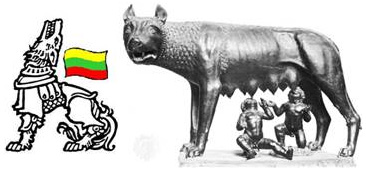
It is a myth that Rome and Vilnius both were established by wolves. But it is no myth that the Italians have put an indelible mark on Lithuania, and when Gediminas, the Grand Duke of Lithuania, in 1323 decided to put down roots in what is now Vilnius city, a Franciscan monastery was already in place – at the foot of Castle Hill where the Cathedral today is located. Since then, for hundreds of years, the spirit of Rome and Italy played a main role in the development of Vilnius and to a certain degree also of Lithuania.
No wonder that Vilnius sometimes is referred to as
“The world’s most Italian city outside Italy”.
- Bookmark :
- Digg
- del.icio.us
- Stumbleupon
- Redit it
VilNews e-magazine is published in Vilnius, Lithuania. Editor-in-Chief: Mr. Aage Myhre. Inquires to the editors: editor@VilNews.com.
Code of Ethics: See Section 2 – about VilNews. VilNews is not responsible for content on external links/web pages.
HOW TO ADVERTISE IN VILNEWS.
All content is copyrighted © 2011. UAB ‘VilNews’.

 Click on the buttons to open and read each of VilNews' 18 sub-sections
Click on the buttons to open and read each of VilNews' 18 sub-sections 

